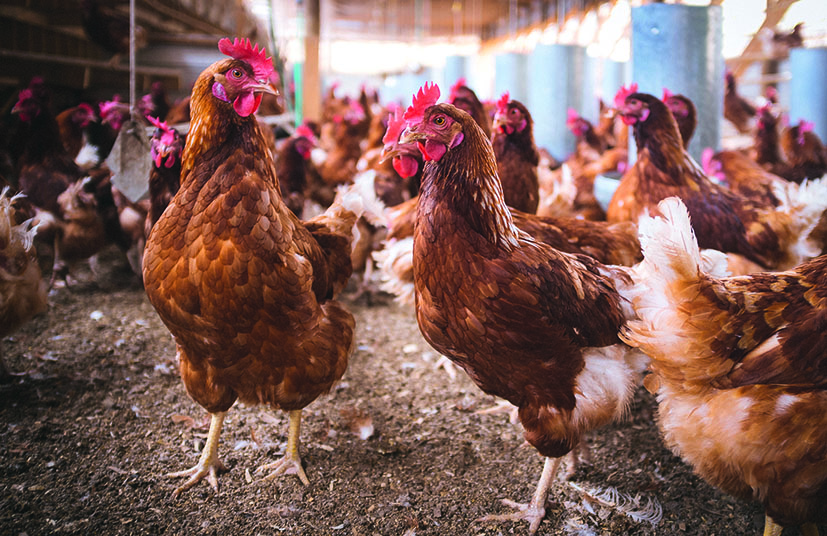Optimising bird welfare during housing
4th January 2023
Following the introduction of the poultry Housing Order on 7th November, Poultry Health Services clinical director Sara Perez-Palacios, explains how to further reduce the risk of avian influenza in laying and rearing flocks, and ensure that bird health and welfare is optimised during the housing period.
Working with the Animal and Plant Health Agency (APHA) on many AI outbreaks has given Poultry Health Services a wealth of practical experience in dealing with these cases. Keeping birds indoors reduces the risk of contact with wild birds, but good biosecurity on site is still crucial to prevent this disease. Movements of people, vehicles and equipment between sites remains your main risk.
Questions to ask yourself include: have you done your AI risk assessment? Have you identified the critical areas on your farm where AI could be introduced? Have you got a contingency plan to store eggs if you were in the restricted area following an outbreak of AI?
It is always best to plan ahead and have all the documentation and procedures needed in place whilst you are not affected by an outbreak.
Optimising bird health and welfare
Whilst every farm is different, there are three main areas to assess whilst the birds are kept indoors:
Environment control: As the pop holes will be closed, the air flow in the sheds will be affected. Therefore, the air quality may deteriorate, particularly in naturally ventilated houses. Now is the time to check what the CO2 and humidity levels would be in your shed if the pop holes were closed. Environment monitoring tools have become more affordable over the years and you can now buy a good quality, portable meter to measure CO2, temperature and humidity all-in-one online for less than £100.
Remember that light intensity inside the shed will also be affected by closing the pop holes and this may result in more floor eggs or in the birds becoming unsettled. Luxmeters are useful tools that will help you to adjust the light intensity accordingly and ensure that there are not dark spots in the sheds.
Bird behaviour: Aggression, vent pecking, smothering and cannibalism may develop as the birds are kept indoors. These undesired behaviours can be prevented (or reduced) through a combination of light management and environmental enrichment. The use of string bunches, pecking blocks and Lucerne bales encourages the birds to explore and forage, which reduces the inter-bird interaction. There is also some evidence that leaving a radio on in the shed reduces aggression and makes the birds less susceptible to stress due to external noises. There are a variety of pecking blocks for different purposes and it is always best to discuss the options with your vet.
Finally, there are some products that are added to water or feed that can have a calming effect on the birds.
Bird disease: Respiratory diseases tend to be more prevalent in the winter and may be exacerbated by poor ventilation. Most flocks are now vaccinating against infectious bronchitis in layers and this should continue during the Housing Order. We would recommend contacting your poultry vet if you are seeing sub-optimal production, egg quality issues or mortality.
In winter, we tend to see fewer red mites and worms. However, we recommend proactively monitoring levels of red mite and worms throughout the year. Red mite monitoring can be done using red mite traps, which are provided by us at Poultry Health Services and analysed at our diagnostic laboratory. This allows you to plan strategic treatments. We also recommend monitoring worm egg levels with regular worm egg counts performed every six weeks. This allows you to assess the worm burden in your flock and target treatment when there is evidence of increased worm eggs.
In summary, the Housing Order should help us control the spread of AI, but this is only one of the many steps that are necessary to stop the spread of the disease. If you need biosecurity advice, help with your AI risk assessment or wish to discuss a health monitoring programme for your birds or which products are available in the market for different conditions, please do not hesitate to contact any of our poultry vets.

